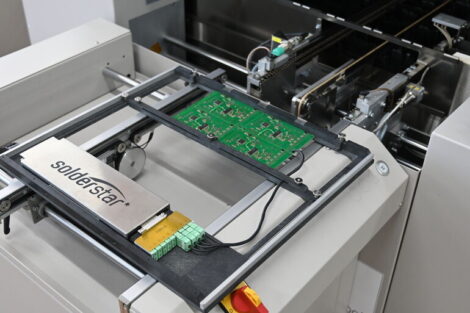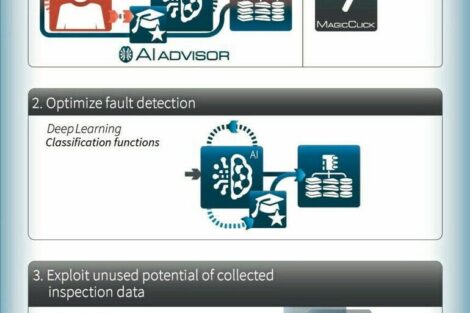Gen3 Systems’ Managing Director Graham Naisbitt, member of both the IEC and IPC test standards committees, has called attention to the need for manufacturers to draw a clear distinction between solderability – a quantitative measurement of how well molten solder wets component joints and PCB pads indicating the robustness of the surface finish – and soldering ability – a term used to describe how well a specific combination of flux and solder work together to solder a component to a PCB.
While this isn’t a new problem, it has become more critical as lead-free solder becomes the norm after the EU’s Restriction of Hazardous Substances (RoHS) deadline and the release of updated International Electrotechnical Commission (IEC) and Association Connecting Electronics Industries (IPC) soldering standards.
Previously, manufacturers using tin/lead alloys could compensate for poor solderability by tuning the soldering process – thus improving the soldering ability of the assembly. However, this is no longer an option for lead-free solder because it is a much less forgiving process. Consequently it is now critically important for manufacturers of high reliability electronics to determine the solderability of components and PCBs prior to assembly.
“Solderability testing now needs a much higher level of precision, repeatability and reproducibility to take account of unforgiving nature of the high tin content alloys that have been recommended by IEC and IPC,” explains Naisbitt. “Assemblers need to know for sure that they are using boards and components of known acceptable solderability that will always solder satisfactorily in their established and optimised process without any form of tweaking or adjustment,” Naisbitt continues.
“The higher soldering temperatures and thermal issues of lead-free allied with unproven on-board electrochemical and contamination reactions between various other process chemistries are just too complex and poorly understood to let the soldering process be changed at will,” Naisbitt concludes.
After extensive soldering analysis involving 30,000 individual tests, imminent new IPC standards recognise that wetting balance force measurement and globule testing is better than traditional ‘dip-and-look’ manual judgements for quantitatively determining solderability to the precision required so that adjustment to the soldering process becomes unnecessary.
According to the IPC: “Users who believe that the ‘dip-and-look’ methodology has a respectable Gauge R&R would be in for an extreme shock. The IPC committees have also voted that no new solderability test methods will be introduced into the standards without a demonstrated, industry acceptable Gauge R&R value.”
Defining new test methods is critical because the reliability of electronics hinges on the performance of the solder. “There are compelling environmental reasons for switching to lead-free solder alloys,” explains Naisbitt. “Unfortunately this does mean changing from tried and trusted tin/lead alloys to alternatives that have not been subject to such intense performance analysis.”
“Consumers might not feel so comfortable about moving less tried and tested alloys if their lives are reliant on it, for example, if they are a passenger on a large aircraft. Our mission is to reduce, or if possible remove, all doubt; but that won’t be a trivial task,” he adds.
Gen3 Systems manufactures the Must System Solderability Tester for wetting balance force measurement and globule testing. The equipment is ideal for both tin/lead and lead-free alloy testing and has been used by the industry for many years. The company has also produced a lead-free bath and globule set and lead-free accessories kit to allow existing Must Solderability Tester owners continuing use of their equipment.
EPP EUROPE 400
Share:









